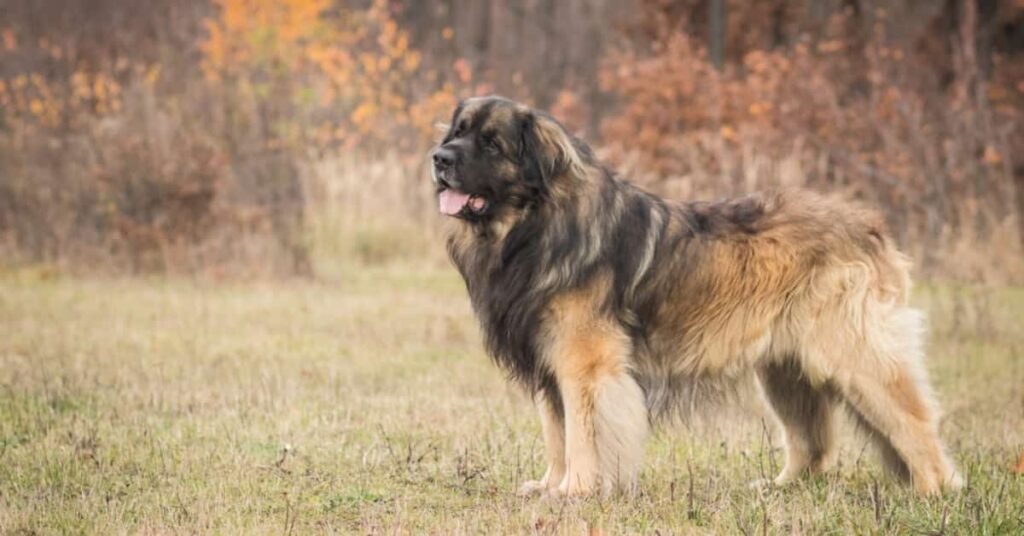Autism is a well-known developmental disorder in humans characterized by challenges in social interaction, communication, and behavior. However, the question, “Can dogs have autism?” has sparked growing curiosity among pet owners and veterinarians. Many veterinarians, myself included, are often asked this question. So, let’s find out the answer! This article explores the concept of autism in dogs, its potential symptoms, and how to care for pets that exhibit behaviors similar to autism.
What Is The Definition Of Autism?
Autism, also known as Autism Spectrum Disorder (ASD), is a neurological and developmental disorder affecting the individual’s social functioning, communication, and stereotypic behaviors. There are many symptoms of autism ranging from mild to severe. It is termed a ‘spectrum’ due to it’s nature of variation among humans. Some of us vets believe that the environmental factors and genetic makeup of the individual might hold the key to understanding the ailment; however, the precise factors responsible for autism have time and again eluded the experts.
But what about the animal kingdom? Specifically our dogs. The question remains: Can dogs have autism or something close to that?
Is Autism in Dogs Scientifically Proven?
There is still no such case in the medical field where a dog has been diagnosed with autism. The norm has been that veterinarians and animal behaviorists tend to avoid the term “autism” when explaining an action of a dog. Instead, they describe such actions as Canine Dysfunctional Behavior (CDB). CDB is a broad range of activities or behaviors an unusual dog might exhibit, such as:
- Interacting less with humans or with other dogs.
- Repetitive actions like pacing back and forth and tail chasing.
- Sensitivity to stimuli like sounds or touch.
Although autism in dogs is not scientifically proven, researchers have found evidence that shows some dogs exhibit behaviors that resemble it and named them CDB or neurodiverse conditions in dogs.
Potential Symptoms of Autism-Like Behavior in Dogs
Dogs cannot be diagnosed with the same types of autism that humans are. However, some dogs seem to have some characteristics that can be deemed off when they display uncharacteristic behavior. There may even be some abnormal traits that tend to be a sign of a neurodevelopmental disorder. Here are some symptoms that might be akin to an autism spectrum disorder:
1. Social Withdrawal:
Dogs with CBD avoid other dogs and people and might dislike petting, playing, and even touching.
2. Repetitive Behaviors:
Chasing tails, compulsive licking, and walking in loops may become a routine for such dogs.
3. Sensitivity to External Stimuli:
For some dogs, being in a new place or hearing something loud can be a source of stress or create too much stimulus overload.
4. Lack of Eye Contact:
Dogs that display autistic tendencies or behavior do not maintain eye contact when looking at other people which is a popular habit among other dogs that are more sociable.
Reasons As To Why Dogs Tend to Act Autistic
Other aspects contributing to neurological problems in dogs are still being researched. On the other hand, a few of them have already been mentioned as important. Some of them are mentioned below:
- Genetics: Some breeds are genetically prone to certain neurological disorders. Examples are the Cavalier King Charles Spaniel, German Shepherd, Doberman Pinscher, and a variety of other breeds susceptible to epilepsy, degenerative myelopathy, and other forms of genetic neurological disorders.
- Environmental Stress: Autism-like behaviors in dogs may be seen due to hostility and trauma or just to a lack of social exposure which contributes to environmental stress. However, there is no conclusive evidence to suggest that it directly correlates with neurological disorders. The above-mentioned behavior traits are, in most cases associated with anxiety and fear rather than with any neuro-genetic disorder. Dogs suffering from chronic stress and traumatic experiences will show social withdrawal, hypersensitivity, and compulsive and repetitive behavior (tail chasing and licking) which are signs of anxiety and stress disorder and not development conditions.
How to Take Care of Dogs Who Have Autistic-like Behavior?
If your dog exhibits autism-like behaviors, providing appropriate care is important to ensure their well-being. Here are some tips that I usually recommend to my clients with similar cases:
1. Proper Routine Structure
Known to have aggressive behaviors, dogs of such traits would relax easily if they faced very few to no major changes on a daily basis, set a proper time for walks, meals and playtime slots.
2. Reward Good Behaviors
Try to reward good behavior and obedience with treats and rewards. This can create a positive feedback mechanism and help your dog stabilize its emotional disbalance.
3. Stress Management
Pets who suffer from stress do not react well to loud noises, so try to keep them in a quiet and relaxed environment, away from the noises.
4. Consult a Veterinarian or Behaviorist
If you can not control your dog’s abnormal behavior, it is best to consult a vet. We, Veterinarians and animal behaviorists, can help determine if your dog has CDB or another such condition and suggest appropriate treatments.
The Debate: Is It Possible For Dogs To Have Autism?
There is a great divergence of opinion on canine autism, even among researchers and veterinarians. Further studies are needed to clarify whether we can eventually diagnose canine autism. I, as a professional, believe, that whatever the answer might be to the debate, as dog owners, we must continue to strive for the betterment and protection of our furry friends regardless. It is our duty to provide the best for our dogs and to resolve any of their issues. Be it autism or any other condition, if you notice any abnormality, contact a vet and work on resolving the issue immediately.
Also, remember, they are not “bad” dogs or “untrainable” dogs. Most CDB dogs can be happy and normal with enough care and love.
Conclusion
So, can dogs have autism? For now, the answer remains a question mark. However, certain dogs’ hyperactive disorder certainly portrays signs that connect with the symptoms of autism disorder. What’s crucial is that, regardless of whether these behaviors are indicative of a certain disorder or not, everyone must appreciate the needs of their canine companion, as all dogs are different. If you find a pet dog or any other animal exhibiting signs that show traits similar to that of an autistic child, you must first consult with a veterinarian for immediate advice.






